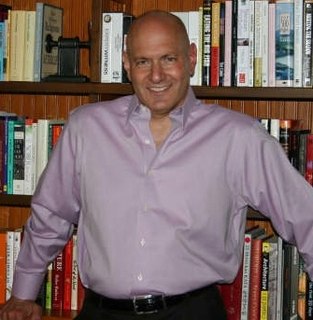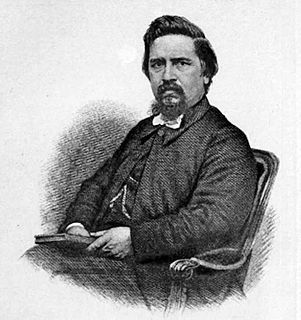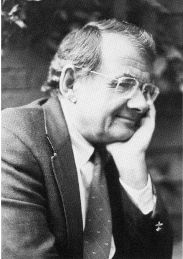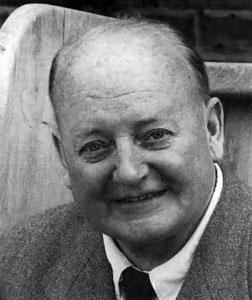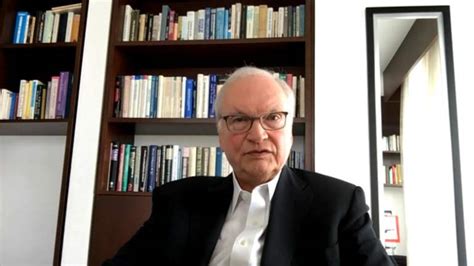A Quote by Keith Ablow
God is not attracted to mountaintops or church steeples. God is drawn to suffering, and the dark places it surfaces, which is why sharing pain freely feels very much like love, and may be the same thing. (207)
Related Quotes
The question is absurd: when you ask, 'If God is both all good and all powerful, why then does He allow suffering?', what you are really asking is, 'If God is both all good and all powerful, why then can He not make me (the questioner) - who is just as much a part of a universe in which there is suffering as is any other part - be at the same time the exact same questioner, but one who is now part and parcel of a universe in which there is no suffering?' Which, reduced down, is the same thing as asking, 'Why can there not be, at the same time, X and the preclusion of X?'
Whoever has God truly as a companion, is with him in all places, both on the streets, and among people, as well as in church, or in the desert or in a monastic cell...Why is this so? It is so because such a person possesses God alone, keeping their gaze fixed upon God, and thus all things become God for him or her. Such people be a God in all their deeds and in all the places they go, and it is God alone who is the author of all their deeds.
Man depends on God for all things: God depends on man for one. Without man's love God does not exist as God, only as creator, and love is the one thing no one, not even God himself, can command. It is a free gift or it is nothing. And it is most itself, most free, when it is offered in spite of suffering, of injustice, and of death . . . The justification of the injustice of the universe is not our blind acceptance of God's inexplicable will, nor our trust in God's love, his dark and incomprehensible love, for us, but our human love, notwithstanding anything, for him.
To some, the image of a pale body glimmering on a dark night whispers of defeat. What good is a God who does not control his Son's suffering? But another sound can be heard: the shout of a God crying out to human beings, "I LOVE YOU." Love was compressed for all history in that lonely figure on the cross, who said that he could call down angels at any moment on a rescue mission, but chose not to - because of us. At Calvary, God accepted his own unbreakable terms of justice. Any discussion of how pain and suffering fit into God's scheme ultimately leads back to the cross.
It is possible to evangelize the world in this generation, if the Church will but do her duty. The trouble is not with the heathen. A dead Church will prevent it, if it is prevented. Why should it not be accomplished? God will have all men to be saved and come unto the knowledge of the truth. The resources of the Church are boundless. Let the will of the Church be brought into line with the will of God, and nothing will be found to be impossible. May God grant it!
I have been asked hundreds of times in my life why God allows tragedy and suffering. I have to confess that I really do not know the answer totally, even to my own satisfaction. I have to accept, by faith, that God is sovereign, and He is a God of love and mercy and compassion in the midst of suffering.
Thou shall love the Lord with thy whole heart, soul, and mind. This is the commandment of the Great God, and he cannot command the impossible. Love is a fruit in season at all times and within reach of every hand. Anyone may gather it and no limit is set. Everyone can reach this love through meditation, spirit of prayer, and sacrifice by an intense inner life. There is no limit because God is love, love is God, God's love is infinite. But part is to love and to give until it hurts. That's why it is not how much you do, but how much love you put into the action.
It is when we attempt to avoid suffering by withdrawing from anything that might involve hurt, when we try to spare ourselves the effort and pain of pursuing truth, love, and goodness, that we drift into a life of emptiness, in which there may be almost no pain, but the dark sensation of meaninglessness and abandonment is all the greater.
If the immutable heart can be grieved by the puppets of its own making, it is Divine Omnipotence, no other, that has subjected it, freely, and in a humility that passes understanding. If the world exists not chiefly that we may love God, but that God may love us, yet that very fact, on a deeper level, is so for our sakes. If He who in Himself can lack nothing chooses to need us, it is because we need to be needed.
